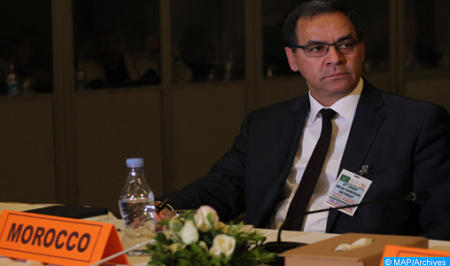Morocco’s Humanitarian Action in Africa, Fundamental Pillar of its African Policy – Ambassador Tells AU PSC
Morocco’s humanitarian action in Africa is a fundamental pillar of its African policy, said, Wednesday in Addis Ababa, Ambassador, Permanent Representative of the Kingdom to the AU and UNECA, Mohamed Arrouchi. The Moroccan diplomat was speaking at a meeting of the African Union’s Peace and Security Council (AU PSC) on the humanitarian situation in Africa ahead of the Extraordinary Humanitarian Summit that will take place in late May in Malabo, Equatorial Guinea. The long-standing solidarity, which guides the Kingdom’s humanitarian action since its independence, has been demonstrated in the context of the Covid-19 pandemic through the delivery of medical aid within the framework of South-South cooperation, said the diplomat who led the Moroccan delegation to this meeting. On this occasion, the Moroccan delegation highlighted the dispatch of 12 field hospitals as part of the UN peacekeeping operations, in addition to the provision of humanitarian aid. The delegation also recalled the Kingdom’s commitment – through its humanitarian and resilience dialogue with the Sahel region- to assisting the Sahel countries in the context of sustainable development. In light of the overlapping challenges in terms of food security, the interaction between climate change and development, as well as humanitarian access in the context of the terrorist threat, the Moroccan delegation stressed the need to work within the framework of inter-African cooperation and to adopt an approach aimed at strengthening the resilience of refugees. Concerning refugee protection, the delegation emphasized the critical importance of supporting registration and documentation operations as key tools for refugee protection and as an essential indicator in the evaluation of humanitarian assistance to refugees. In this regard, Morocco recalled the fundamental responsibility of host countries in this registration process, which is essential to avoid any exploitation of refugees, particularly child recruitment into armed militias. The delegation also highlighted the fact that humanitarian aid is embezzled, calling for examining ways and means to avoid such practices.

